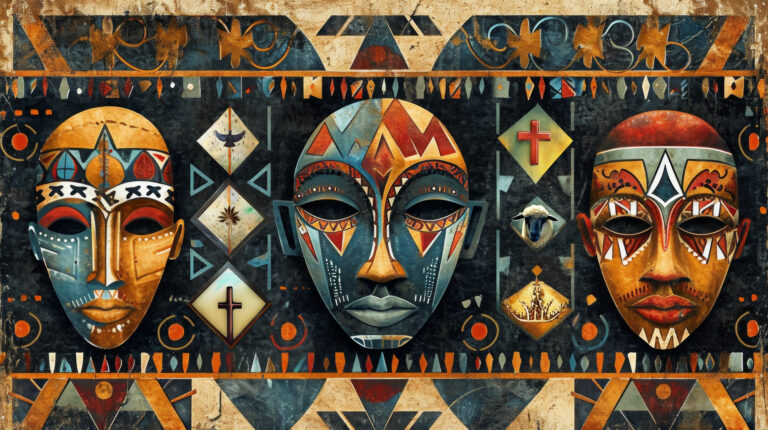What is Christmas to you? Good gifts and rare delicacies? Family visits? In Uganda, Christmas means trips to ancestral villages as ‘lost’ sons and daughters return home, bearing bags. Acquaintances reminisce about their days in high school. Christmas unshackles many from their nine-to-five enslavement to “master” monthly check.
But for Christians, Christmas means much more. It is a crucial reminder of the God who cares enough to personally come to our rescue, the Lord who makes the long trip to our village for us. At its heart, Christmas is about the presence of God.
God’s Nearness in the Old Testament
God always longed to be near his people. The Bible begins with God creating the heavens and the earth as darkness covers the deep (Genesis 1:1). In that darkness, God’s Spirit (or presence) closely hovered over the waters and brought forth light (Genesis 1:2-5). God walked so closely with our first parents that they were fully aware of his presence (Genesis 3:8).
God walked so closely with our first parents that they could sense his presence from a distance.
The Lord desired to be close to his people even after the fall. The covenantal promises pointed at this longed-for nearness where the Lord becomes his people’s God (Genesis 15:1; 17:7-8; Exodus 29:35; Leviticus 26:45; Zechariah 8:8; Jeremiah 32:38). The Lord promised to be with Moses in Egypt as he saved his people from slavery (Exodus 3:12; 4:12, 15). The divine presence made Israel unique; it made Israel (Deuteronomy 4:7).
Estranged by Sin from God’s Presence
But Adam and Eve sinned, and the Lord cast them from his presence (Genesis 3:22-24). Then Israel took the divine presence for granted by turning to idols (Exodus 32). At first, God threatened to desert them (Exodus 33:3, 15). Eventually, their persistence in idolatry saw the Lord’s glory depart (1 Samuel 4:21), via the temple’s eastern gate (Ezekiel 10:18-19). Like Adam and Eve, Israel’s sin caused their expulsion from their God-given place and presence (Deuteronomy 29:24-28).
Like Adam and Eve, Israel’s sin caused their expulsion from their God-given place and presence.
Africans deeply know this estrangement from the divine, as Mbiti reminds us in Concepts of God in Africa. The Bambuti believed God withdrew from them when they ate the forbidden tree, while the Barotse attributed the divine absence to the first humans killing and eating animals. In many traditional Ugandan cultures, God is relationally distant, and Ugandans resorted to intermediary beings—nature or mortals made into gods to bridge the gap. The Baganda sought balubaale, while the Banyankore-Batooro petitioned emandwa. Even then, the witch doctors were mediators of these intermediary gods, thus increasing the gap between the ordinary person and God.
Like the first parents and Israel, Africans know their estrangement from the divine presence because of sin.
The Promise of Nearness
The fall did not remove the Lord’s longing for nearness to his people. But human sinfulness still posed a problem: how could a holy God dwell amidst sinners?
How could a holy God dwell amidst sinners?
Enter the tabernacle, a dwelling for the divine presence. There, priests offered sacrifices for sin as God dwelt among his people—temporarily (Exodus 29:42-46; 33:7-11). While the tabernacle gave way to the temple in Jerusalem (1 Kings 7), such human-made artefacts could not permanently house God. “Would you build me a house to dwell in?” (2 Samuel 7:5). Indeed, “what is the house that you would build for me, and what is the place of my rest?” (Isaiah 66:1). If God is to dwell with us forever, he must build his house. But when, how, and where?
In Jesus, We Encounter God
The New Testament provides an emphatic answer to this question: God has built his house as promised! Christmas points to the when, Jesus’ birth to the how, and his body is where God meets his people. John’s Gospel wastes no time, like Genesis. We read of Jesus, through whom “all things were made” (John 1:3). As the Lord’s presence brought light over his dark creation in Genesis 1:2-5, John insists that in Jesus “was the light of men” which “shines in the darkness, and the darkness has not overcome it” (John 1:4-5). Jesus’ presence shines over human darkness—your darkness.
Jesus bridged the gap between the Creator and us. The Lord is here, tangible and touchable.
Moreover, Jesus as the Word “became flesh” and “dwelt among us,” visibly full of the divine glory that had departed Israel (John 1:14). The word “dwell” means “to tabernacle” or “to make a tent,” a reminder of God’s tabernacle of dwelling in Exodus. By his birth, the Lord of light finally and eternally united himself to his people in an indissoluble union. No more need for intermediaries, whether gods, witchdoctors, priests or pastors. Jesus bridged the gap between the Creator and us. The Lord is here, tangible and touchable. He is wrapped in simplicity, swaddled in a blanket, and lying in a manger. In Jesus, God has built a permanent house where he dwells with his people forever. As God and man, Jesus is humanity’s decisive divine encounter, the Immanuel (Matthew 1:22-23).
Jesus is that tent of meeting, the place of atonement. The priests need no more to offer sacrifices for sin in the tabernacle or Solomon’s Jerusalem temple. Jesus’s body is the temple where sacrifices for sin were offered so that a holy God could dwell with sinful humanity (John 2:19-20). Besides being God and an encounter between God and humanity, Jesus is the place for the atonement of our sins.
But as God, Jesus is also our Saviour. His name means that “he will save his people from their sins” (Matthew 1:22). Note that God’s people in the Old Testament belong to Jesus in the New Testament. Jesus assumes God’s role of saving his people from sins through his presence.
Christmas: Our Annual Reminder of God’s Loving Presence
Christmas is an annual reminder of when God brought the lost sons and daughters home. It tells a sweeter tale than food or family visits. It whistles a familiar tune to our estranged hearts, a song sweeter than the enchanting sirens in Homer’s Odyssey. The reality of which Christmas is a shadow surpasses our rare delicacies and the reminiscence of old companions.
Christmas tells of the greatest gift, a presence, a visitation from a family member who makes the longest trip to us.
Christmas tells of the greatest gift, a presence, a visitation from a family member who makes the longest trip to us—the Father who draws closer to his people, the Son who treasures brotherhood with mere mortals, and the Spirit who makes all this happen. It is when the Lord’s promised presence permeates us with such a sweet intoxicating nearness that it satisfies the longing of every heart.














